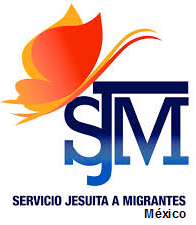 W
WThe Association for Borderlands Studies (ABS) is an international scholarly association dedicated exclusively to the systematic interchange of ideas and information relating to international borders and frontier areas. Founded in 1976 with the original emphasis on the study of the United States-Mexico borderlands region, the association has grown steadily. It now encompasses an interdisciplinary membership of scholars at more than three hundred academic, governmental institutions, and NGOs representing the Americas, Asia, Africa and Europe. The ABS publishes an academic journal Journal of Borderlands Studies and an association newsletter La Frontera, as well as sponsoring an annual meeting.
 W
WAutonomous School Zurich is a grassroot project in Switzerland. This school is run by immigrants as well as Swiss locals. Since 2009 the association "Bildung für Alle" provides education for all under the shelter of the Autonomous School Zurich. On offer are diverse educational and cultural activities for everyone both for undocumented refugees, the socially excluded and all other interested people.
 W
WCANZUK is an acronym for a proposed alliance comprising Canada, Australia, New Zealand and the United Kingdom as part of an international organisation or confederation similar in scope to the former European Economic Community. This includes increased trade, foreign policy co-operation, military co-operation and mobility of citizens between the four states, tied together by speaking English. The idea is lobbied by the advocacy group CANZUK International and largely supported by British conservatives. Other supporters include liberal think tanks such as the Adam Smith Institute, the Henry Jackson Society, Bruges Group and politicians from the four countries.
 W
WThe Global Migration Group (GMG) is a group consisting of fourteen UN agencies, the World Bank and the International Organisation for Migration that work to address global migration issues.
 W
WThe Health Initiative of the Americas is a Latino program focusing mainly on migrant and immigrant health issues. It is part of the School of Public Health at the University of California, Berkeley (UCB).
 W
WThe International Organization for Migration (IOM) is an intergovernmental organization that provides services and advice concerning migration to governments and migrants, including internally displaced persons, refugees, and migrant workers. In September 2016, IOM became a related organization of the United Nations. It was initially established in 1951 as the Intergovernmental Committee for European Migration (ICEM) to help resettle people displaced by World War II. As of 2021, the International Organization for Migration has 173 member states and nine observer states.
 W
WJesuit Migrant Service, Mexico (SJM-Mexico) was founded by the Society of Jesus in 2001, to offer a variety of services for the many migrants passing into, through, or out of Mexico, and to their families.
 W
WNo one is illegal is a loosely connected international network, which advocates for refugees and migrants present in a country unlawfully. Activists in the network take initiatives in favor of migrants who stay in a country illegally and are at risk of deportation. The network has started a campaign and held rallies to bring wider attention to the situation of refugees. The campaign initially began in Germany as No Person Is Illegal and has spread to other countries, including Canada and Belgium. No one is illegal questions the idea of citizenship as a legal condition for access to and participation in the socio-political sphere.
 W
WSince its formation in 2008, the Social Justice Coalition has worked to advance the constitutional rights to life, dignity, equality, freedom and safety for all people, but especially those living in informal settlements across South Africa. While these rights are protected and promoted by our constitution, people do not feel them in their every day lives. Founded in 2008, the SJC is a membership-based social movement made up of 12 branches, located mainly in informal settlements across Khayelitsha, Cape Town. Our campaigns are based on ongoing research, education, and advocacy and divided across two programmes. The Local Government Programme leads the work on sanitation, budgets, and urban land. The Safety and Justice Programme is focused on policing and the criminal justice system.